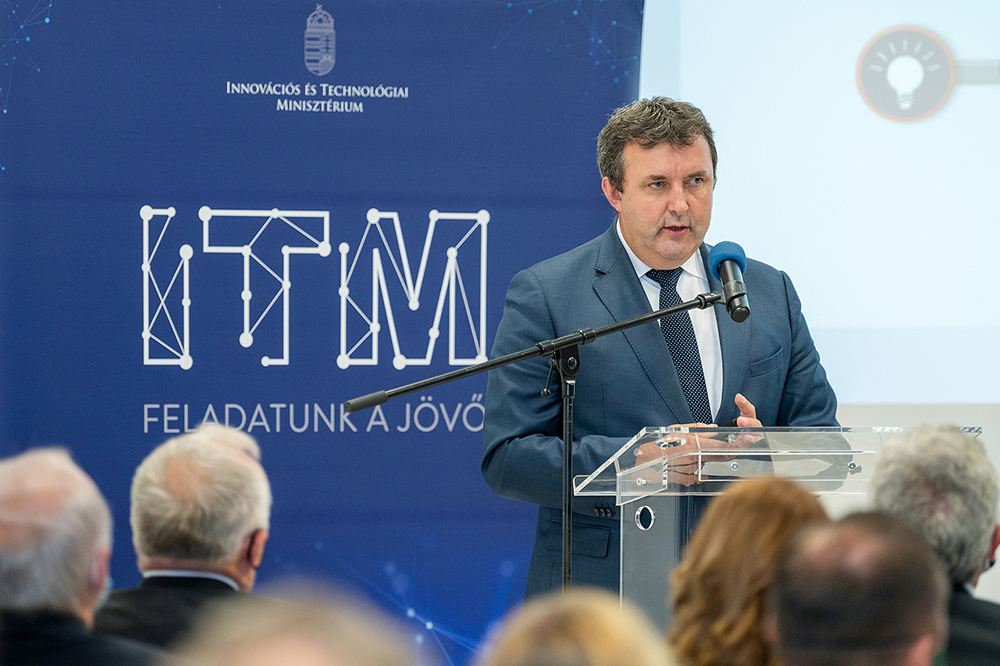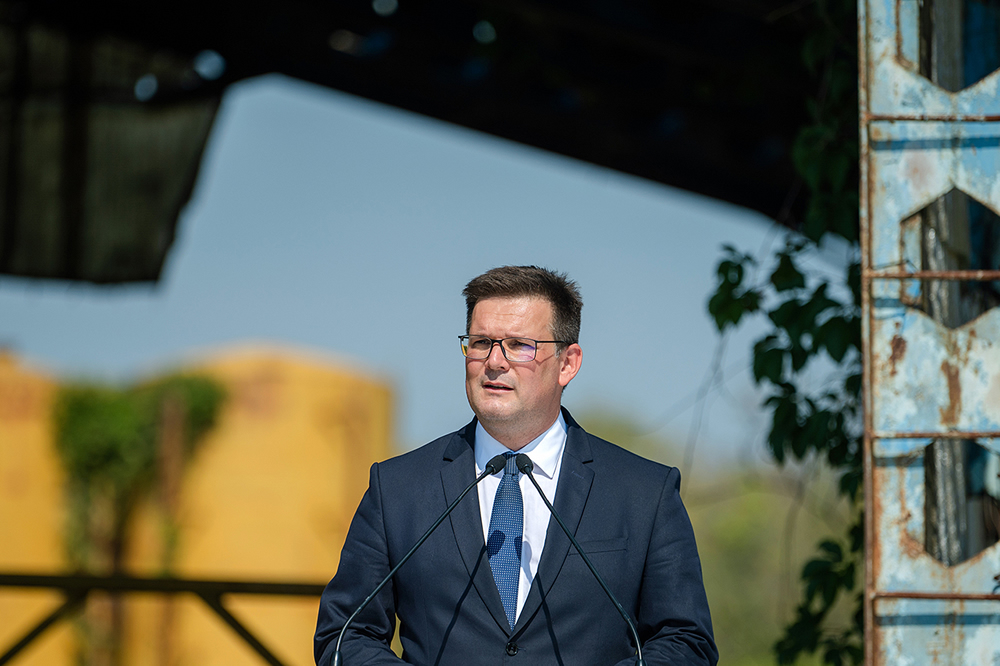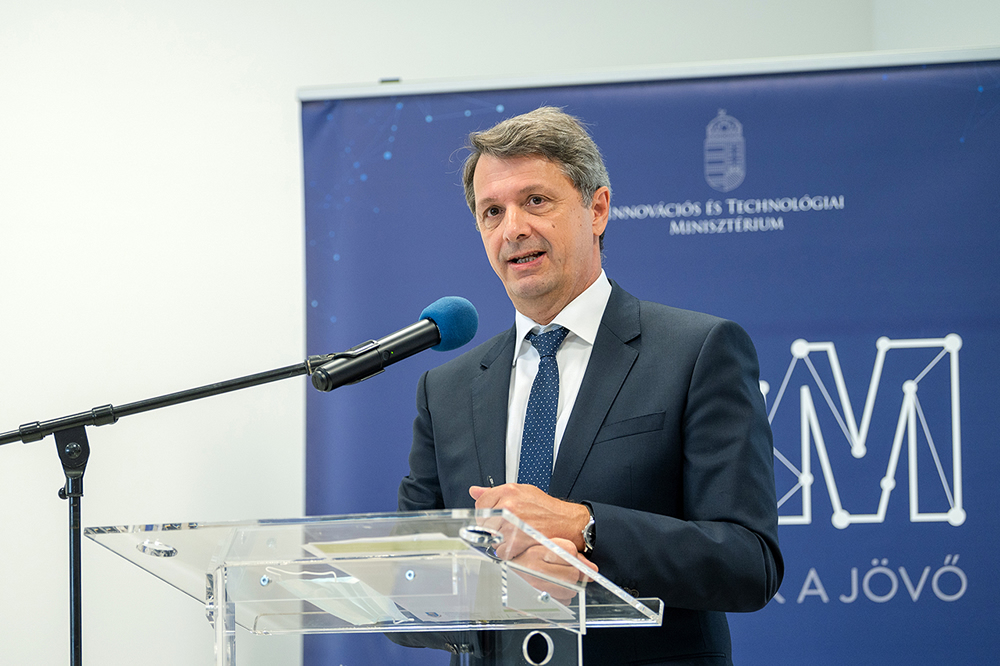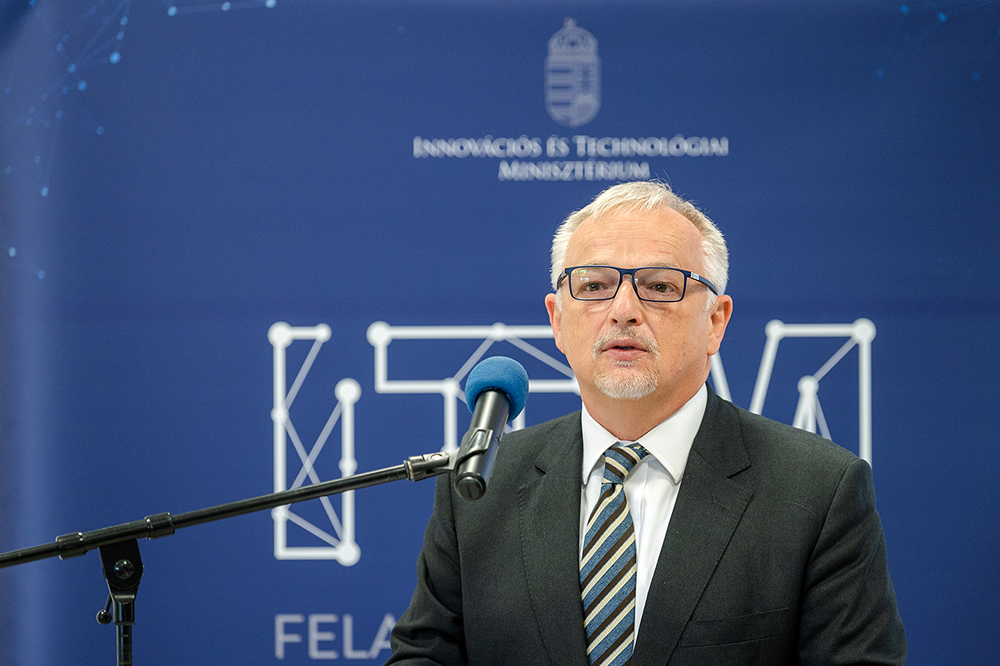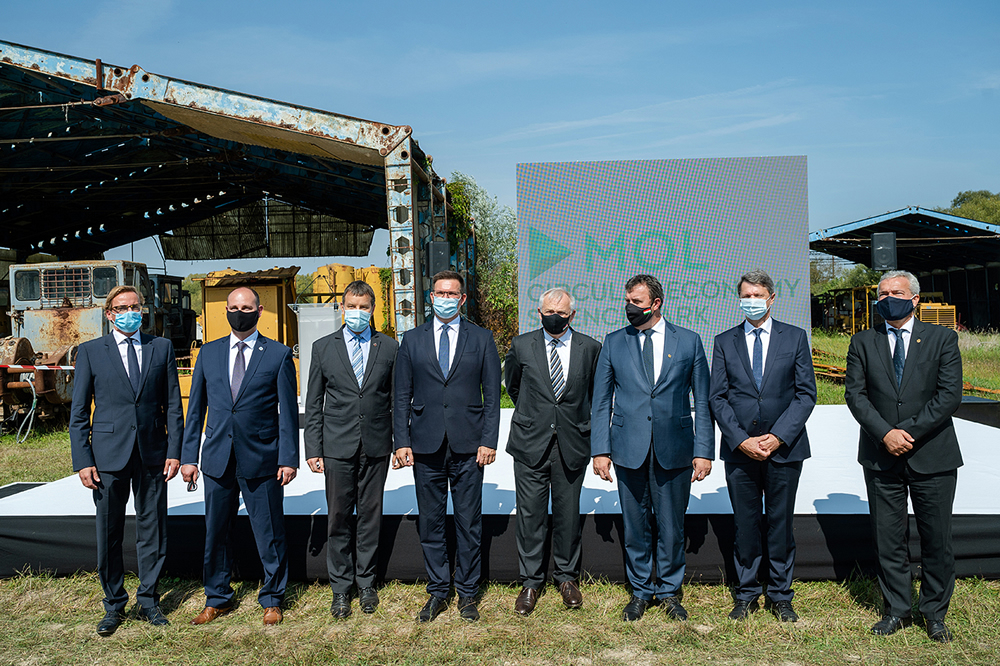László Palkovics explained at the site of Hidrofilt Kft, a water treatment company which will take a leading role in the project, that the Nagykanizsa-based circular economy centre will be built from a HUF 5 billion public investment with the aim of facilitating cooperation between the public, higher education and business sectors. The other facility, a science park to be established from HUF 38 billion in EU funding, will take university-business cooperation to a whole new level and promote the creation of jobs that require market-driven knowledge.
The minister pointed out: the aim is to develop an innovation ecosystem around universities in Hungary to encourage the starting and growth of internationally competitive Hungarian businesses. In recent years, scientific debates have shown that Hungarian science is grounded in basic research but application is no less important: you have to turn ideas into something tangible.
The government intends to strengthen research centres outside Budapest as well, so it provides EUR 51 billion for this purpose from EU funds, an amount that is “unprecedented in Hungary”, in the upcoming programming period – László Palkovics said.
In relation to the new centre of competence he said: it will be established partly in Nagykanizsa, and partly in Veszprém, the project will be led by the University of Pannonia with contributors such as MOL, Hidrofilt Kft, Bay Zoltán Nonprofit Ltd for Applied Research, Nagykanizsai Városfejlesztő Kft and Netta-Pannonia Környezetvédelmi Kft. The centre will deal with energy, waste management, water technology, sustainable tourism and sustainable urban development in the framework of about 50 research subprojects.
László Palkovics called it a next step that one of the 10 science parks to be built in Hungary will be located in Nagykanizsa, financed from HUF 38 billion in EU funds. The Nagykanizsa research centre and science park will also host a promising Hungarian innovation project in the field of hydrogen research.
Zoltán Birkner, President of the National Research, Development and Innovation Office, compared the importance of the two investments in Nagykanizsa to the first steps of the Hungarian oil industry, which emerged from Zala county as well.
As he recalled, the Office’s goal is to “create knowledge and connect it to utilisation” based on the university network and their business partners, and the total funds available in Hungary for this purpose this year reaches HUF 148 billion. The number of applicants has recently multiplied, with 750 new participants entering the competition for funds only this year.
Zsolt Hernádi, President-CEO of MOL said that nearly five years ago, the company had adopted a new strategy to be more open to new industries and innovative technologies.
One of the greatest challenges in waste management, as only about a third of the waste produced in Hungary is currently utilised but the related manufacturing industry is developing rapidly. “Our aim is to create a sound knowledge base that can help take the lead in recycling in Central Europe,” and MOL will assume a leading role in this process, Zsolt Hernádi pointed out. He added that their intention is to develop a waste recycling model in Nagykanizsa that can be spread across the region.
The President-CEO also mentioned that MOL and the University of Pannonia have another joint project in Nagykanizsa in which wastewater samples are tested for COVID-19 to help identify the spread of the virus. The results accurately predict increases in the number of infections.
András Gelencsér, rector of the University of Pannonia talked about, among other things, the importance of shifting from linear to circular economy, which requires “systemic changes”, Nagykanizsa is an ideal location for developing the model programme for this, as all the knowledge and long-established collaborations are in one place here.
Péter Cseresnyés, Member of Parliament from the region (Fidesz) recalled that Nagykanizsa was a major industrial city at the turn of the 19th and 20th centuries, and it preserved the extensive knowledge to build on. Also, it is currently a central hub in water research. Péter Ovádi, Member of Parliament from Veszprém (Fidesz) stressed that the university is an integral part of the life of Veszprém, the development of the businesses, the city would be unthinkable without it.
László Balogh, Mayor (Fidesz-KDNP) pointed out: Nagykanizsa wants to become a model city for circular economy. It will rely on major international actors to take the first steps towards this vision, which will increase the attractiveness of the city.
Source: MTI







